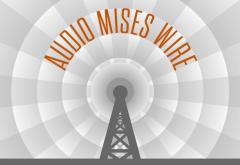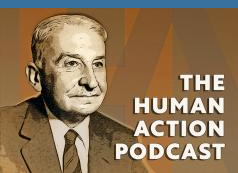Join Joe Salerno, David Gordon, Jeff Deist, Patrick Newman, and many more at the 2022 Libertarian Scholars Conference on Saturday, September 10th! We’ll meet at the Grand Hyatt in Nashville, Tennessee. The first Libertarian Scholars Conference was held in New York City in 1972 under the aegis of the Center for Libertarian Studies. The conference was held annually (except for 1973) throughout the 1970s in New York or Princeton, New Jersey (1977, 1978), with the 8th and last “national” conference taking place at the Hotel Diplomat in New York. In the early 1980s regional Libertarian Scholars Conferences were held in Chicago and other cities. The conferences featured papers by the founding fathers of modern libertarian scholarship, including Murray Rothbard, Leonard
Topics:
Mises Wire considers the following as important: 6b) Mises.org, Featured, newsletter
This could be interesting, too:
Nachrichten Ticker - www.finanzen.ch writes Die Performance der Kryptowährungen in KW 9: Das hat sich bei Bitcoin, Ether & Co. getan
Nachrichten Ticker - www.finanzen.ch writes Wer verbirgt sich hinter der Ethereum-Technologie?
Martin Hartmann writes Eine Analyse nach den Lehren von Milton Friedman
Marc Chandler writes March 2025 Monthly
 Join Joe Salerno, David Gordon, Jeff Deist, Patrick Newman, and many more at the 2022 Libertarian Scholars Conference on Saturday, September 10th!
Join Joe Salerno, David Gordon, Jeff Deist, Patrick Newman, and many more at the 2022 Libertarian Scholars Conference on Saturday, September 10th!
We’ll meet at the Grand Hyatt in Nashville, Tennessee.
The first Libertarian Scholars Conference was held in New York City in 1972 under the aegis of the Center for Libertarian Studies. The conference was held annually (except for 1973) throughout the 1970s in New York or Princeton, New Jersey (1977, 1978), with the 8th and last “national” conference taking place at the Hotel Diplomat in New York. In the early 1980s regional Libertarian Scholars Conferences were held in Chicago and other cities. The conferences featured papers by the founding fathers of modern libertarian scholarship, including Murray Rothbard, Leonard Liggio, Walter Block, Ralph Raico, Ron Hamowy, Roy Childs and Walter Grinder. Other prominent scholars who presented papers were Henry Veatch, Leland Yeager, Hillel Steiner, Douglas Rasmussen, David Calleo, Bruce Russett, and Samuel Brittain.
The Libertarian Scholars Conference was originally conceived as a forum for scholars from different disciplines to meet and exchange ideas on the study of liberty. The ultimate goal was to integrate their diverse insights and approaches into a broad interdisciplinary perspective on liberty, what Murray Rothbard called “the discipline of liberty.” The founders of the conference hoped that this discipline or systematic body of knowledge would give shape and direction to the growing ideological movement of modern libertarianism, much as British classical and French liberal political economy had guided the movement of classical (laissez-faire) liberalism. This series of conferences succeeded admirably in stimulating scholarly research from a libertarian perspective and attracting many new scholars, young and old, to the scientific study of liberty.
The libertarian movement has grown tremendously since the early 1980s and so has the need for intellectual guidance from experts in the social sciences and humanities, whose several disciplines help elucidate the nature of human liberty and its importance in nurturing and sustaining the social order that permits human civilization to flourish.
With this in mind, the Mises Institute, as heir to the Center for Libertarian Studies, recently revived the Libertarian Scholars Conference.
Tags: Featured,newsletter








